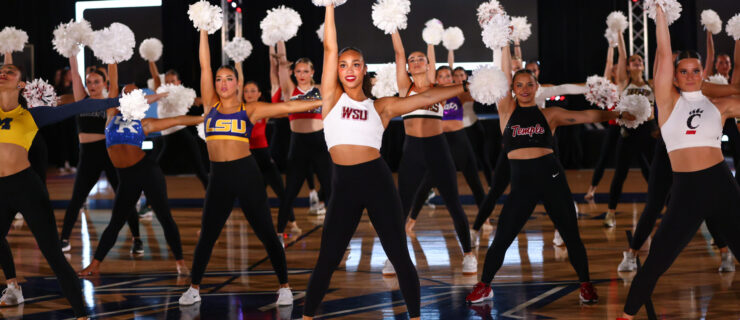Are You Getting Enough Sleep?
With a full schedule of honors classes, myriad school activities, a part-time job and hours spent in the studio, dancer Carly Goldstein rarely got more than five hours of sleep on week nights her senior year in high school. “I remember falling asleep in school, which was horrific, because I was a very serious student,” says Goldstein, now a sophomore studying dance and psychology at Skidmore College in Saratoga Springs, NY. “In ballet class, combine a toasty warm room with beautiful music coming from the piano, and during a plié combination, I’d forget what position I was in and feel my eyelids droop.”
If this sounds familiar, you’re not the only one. According to the National Sleep Foundation’s 2006 “Sleep in America” poll, 45 percent of teens get an insufficient amount of sleep—less than eight hours—on school nights.
Other than the obvious (and annoying) side effect of feeling tired, inadequate sleep takes a serious toll on your health. Here’s what you should know about how it affects your brain, body and (surprise!) your metabolism:
Mental Effects:
Without a good night’s sleep, you’re likely to forget a new combination or snap at a fellow dancer. “Inadequate sleep will result in poor attention, poor problem solving, poor mental flexibility and slower mental processing, and you’ll have much more difficulty regulating your moods,” says Dr. Dean Beebe, an adolescent sleep researcher with Cincinnati Children’s Hospital Medical Center. “You’re going to be much more prone to mental errors while you’re dancing,” adds Dr. Christopher Makris, a sleep specialist from the University of Alabama at Birmingham Children’s Hospital.
Physical Effects:
Beebe explains that your coordination and balance are significantly affected by inadequate sleep, not only impairing your performance, but also putting you at an increased risk for injury. Makris adds that your immune system is also weakened, which means you’re more likely to get sick.
Metabolic Effects:
Sleep deprivation affects your body on a cellular level, and may cause it to burn calories at a slower rate. “There are multiple studies that show that people who get less sleep today will put on more weight during the next two to four years,” says Beebe. Other recent studies have shown that restricted sleep caused healthy young adults to experience an increase in cravings for high-fat and high-sugar foods. That means that poor sleep could drive you to choose junk foods instead of healthy, wholesome ones.
• Recognize your individual needs.
Makris explains that the average teen needs 8.5 to 9.5 hours of sleep, but you may need more or less than that. Get to know your sleep needs! Track how many hours you slept on days when you felt rested and on days when you felt tired. How long you sleep before waking up naturally can also be an indicator of how many hours of sleep you really need.
• Maintain a consistent sleep schedule.
It’s a common practice to go to bed and wake up earlier during the week, and then stay up and sleep in later on the weekends. Unfortunately, this can make you feel jet-lagged on Monday morning. Try to keep your bedtime and wake times as consistent as possible.
• Brighten things up.
“If you’re having trouble getting moving in the morning, get as much bright light as you can, first thing,” says Beebe. He even suggests going outside: “Artificial lighting conditions are 10 to 100 times less than even a cloudy day.”
• Lose the snooze.
“If a person is hitting the snooze from 6:30 am to 7 am, it’s probably just better to wake up at 7 am,” says Beebe. “That way, you’re not intentionally getting bad sleep in the morning.”
• Make sleep a priority.
Your sleep time shouldn’t suffer to allow time for other activities. If you’re in honors classes, the debate club and then dancing for four hours, chances are you’re not setting aside enough for sleeping.
• Turn off the electronics.
“Use your bed for sleep only—take the TV, computer and cell phone out of the bedroom,” says Makris. Watching TV to help you fall asleep may actually be keeping you awake longer. “Studies show that having a TV on in the room with you—especially in your bedroom—will make you stay up later than if you don’t,” says Beebe.
• Avoid late-night exercise.
“Your body temperature is cranked up, and it’s hard to fall asleep after heavy exercise,” says Makris. If you have the choice between a dance class that ends at 7 pm and another that ends at 10 pm, opt for the earlier one. If you can’t avoid late rehearsals, set aside some time to wind down before hitting the sack.
• Curb your caffeine intake.
“People seem to think that caffeine gets washed out of your body in a matter of an hour or two, but the reality is that several hours later there’s still a measurable amount of caffeine in your system,” says Beebe. Even if you drink coffee, soda or tea to stay awake during the day, the caffeine can make it hard to fall asleep once you’re ready for bed, or even cause restless sleep during the night. Limit caffeine to one beverage a day, consumed no later than lunch time.
• Beware of the innocent nap.
If you don’t get enough sleep the night before, you can take a nap to make up for it, right? Not necessarily. “If you can take a 20-minute cat nap and still sleep well that night, then you’re probably fine,” says Beebe. “But if you’re not getting enough sleep during the night, napping to make up for it and then not sleeping the next night, you’re feeding a vicious cycle in which you’ll never function well.”
• Look for sleep disorder warning signs.
Chronic snoring, restlessness during the night, falling asleep during the day, taking more than 20 minutes to fall asleep or waking up frequently during the night can all be indicators of a potential need to see a sleep professional.
Take a few of these tips to bed with you and you’ll feel ready to take on the world tomorrow!
Quiz: Are You Sleep Deprived?
We’ve all heard those studies that say that the average teen needs 8.5 to 9.5 hours of sleep per night. But the truth is that each person’s sleep needs can be extremely different, says Dr. Christopher Makris, a sleep specialist from University of Alabama at Birmingham Hospital. This means you may need more or less sleep than your friends or the national average. Take our super-quick true-or-false quiz to find out if you’re sleep deprived.
1. I never wake up in the morning without an alarm clock.
2. When it’s relatively quiet—like when I’m sitting in the car, watching TV or in a boring class—I find it really difficult to stay awake.
3. The times I go to sleep and wake up are significantly different on the weekends than it is during the week.
4. I often wake up several times during the night.
5. I use the weekends to catch up on sleep that I missed during the week.
6. I’m constantly reaching for highly caffeinated drinks (like energy drinks or coffee) or chewing gum to keep myself awake during the day.
7. I have fallen asleep while driving.
8. I have to take an afternoon nap to get through the rest of the day.
9. I always fall asleep within the first 5 minutes of lying down in bed.
10. I use the snooze button more than once and still wake up tired.
If you answered “true” for three or more of these questions, you could be sleep deprived. If sleep deprivation is affecting your everyday activities, you should ask your doctor about visiting a sleep specialist.



